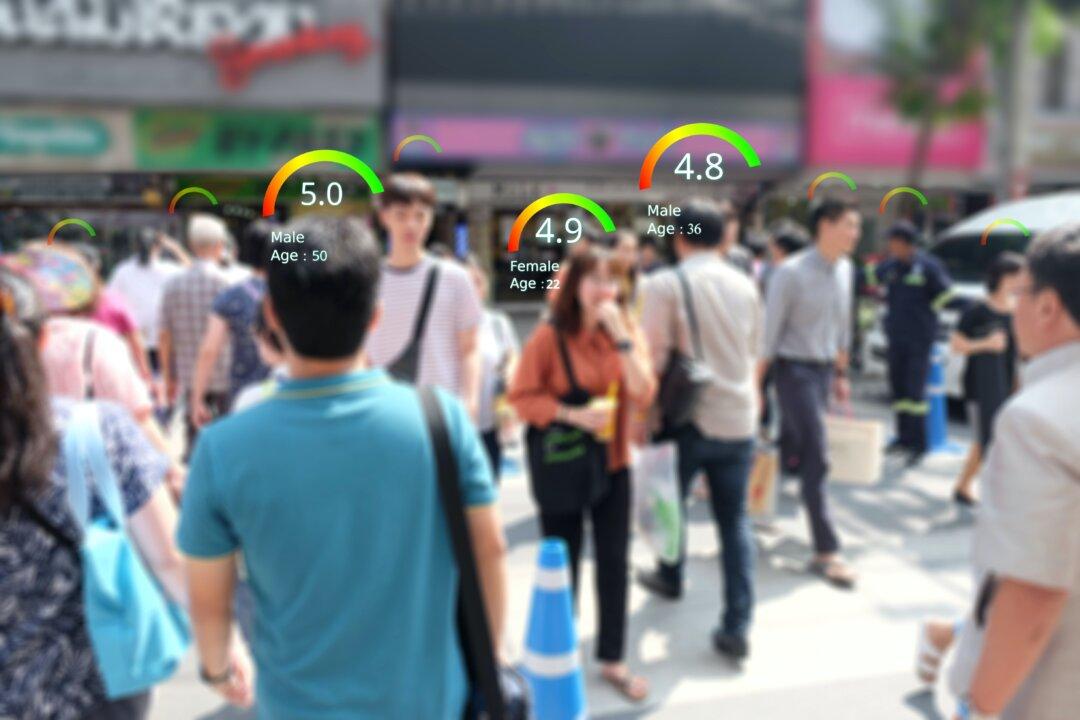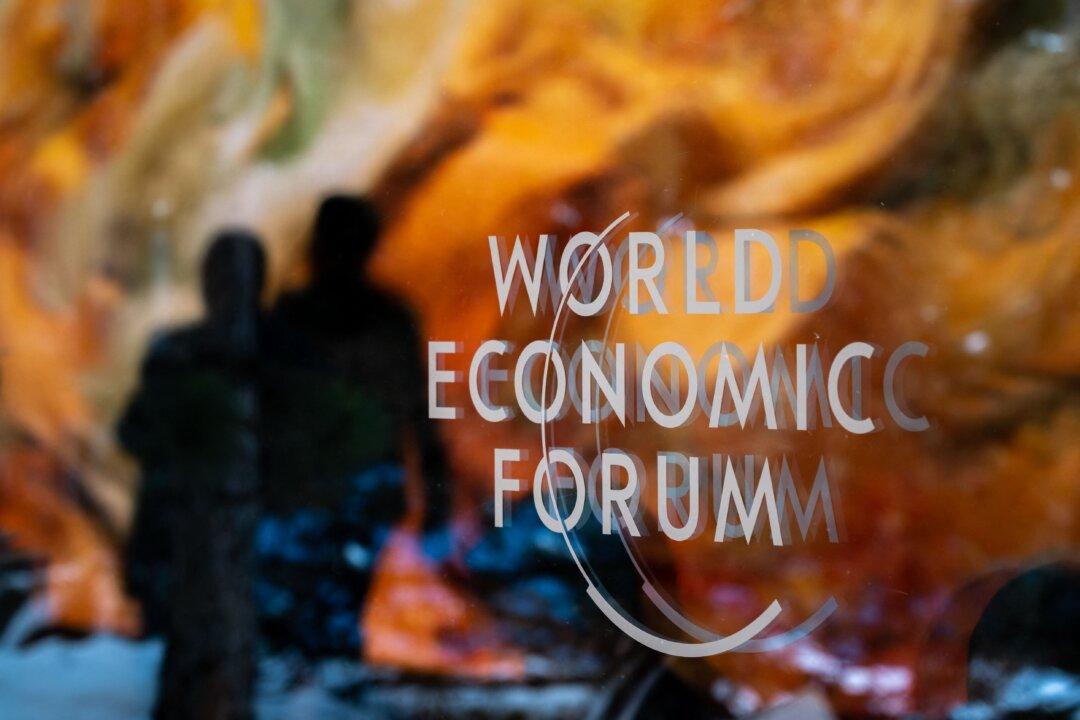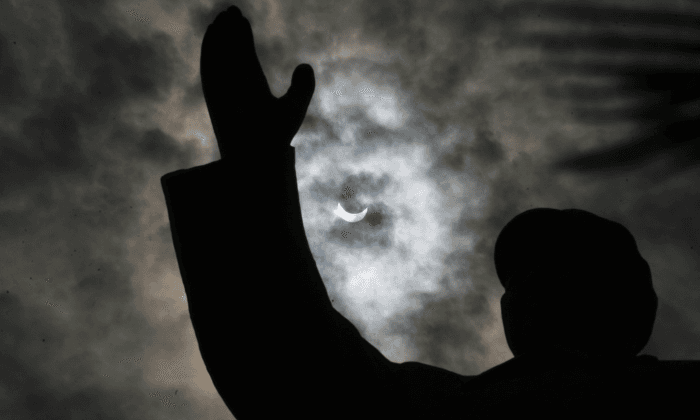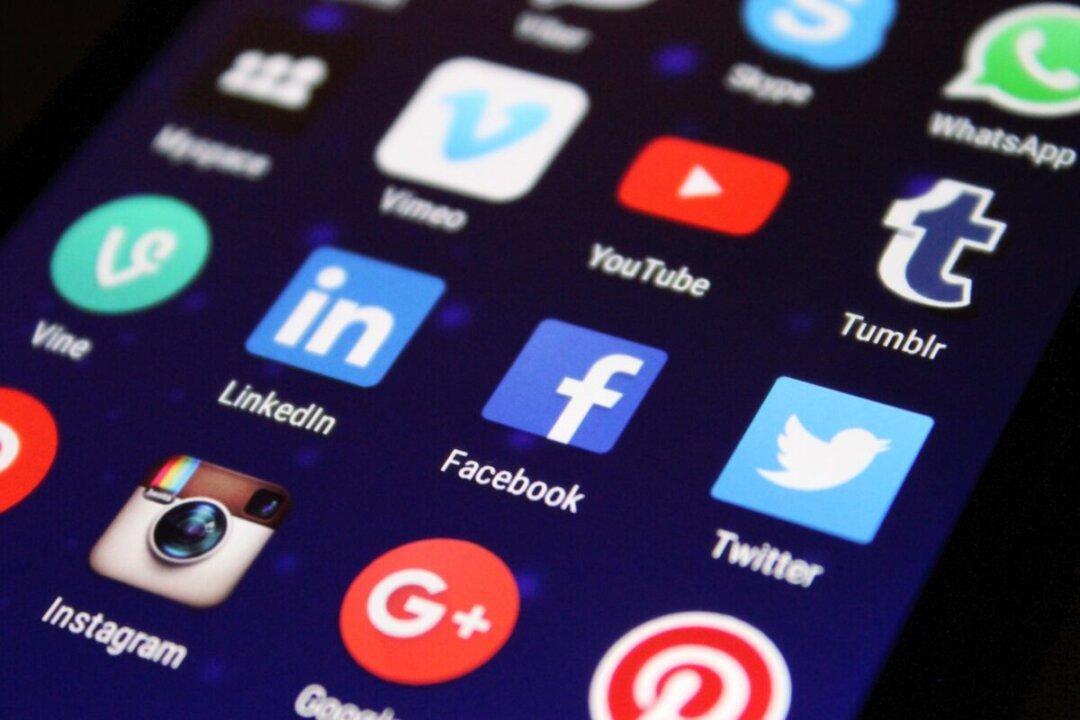Commentary
Critics of the Chinese Communist regime often point toward the government’s social credit system, in which the government traces individuals’ electronic paths, from their comments on social media to items they purchase, and issues rewards and punishments based on the information collected. For example, a Chinese citizen who receives a “bad” social credit score might not be permitted to ride one of the famous high-speed trains, being relegated to the slower trains for travel, and might be denied air travel.





